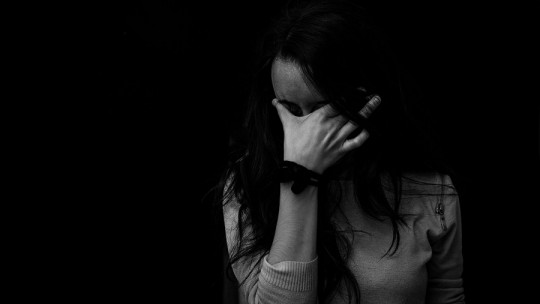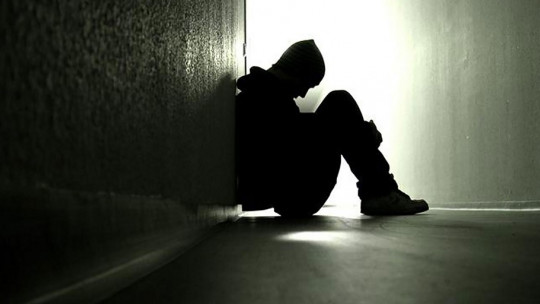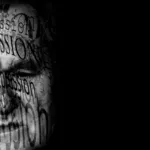Depression is one of the most prevalent mental disorders, so it is a problem to take into account.
There are many effects that it can have on the person who suffers from this ailment, but on this occasion we are going to focus on the patient’s self-esteem. In the following lines we will try to analyze the main ways in which depression can impact self-esteem.
The relationship between depression and self-esteem
Before diving headlong into the problem of the impact of depression on self-esteem, it is advisable to make a brief introduction in which we clarify these concepts. And it would be inappropriate to delve into this issue before making clear terms as important as the idea of depression itself and also self-esteem.
Depression is a psychopathology framed within mood disorders and characterized by a deep and recurring feeling of sadness and/or hopelessness. This sensation can be accompanied by many others, all of a negative nature, such as frustration, easy irritability, a state of general discomfort, or a feeling of helplessness, among others.
Although we will later see in depth the impact of depression on self-esteem, we must know that this diagnosis is usually characterized by a great feeling of hopelessness from three different perspectives. One of them is the life of the subject who suffers from it, another is about the world in general and the third of them refers to future events, which are anticipated from a pessimistic perspective.
On the other hand, focusing now on self-esteem, we can define this concept as an evaluation of the person themselves in which they make a judgment about what they are worth. In that sense, the person will be able to make positive or negative judgments on a one-off or recurring basis. If the subject tends to make negative self-evaluations, we consider that he or she has low self-esteem. If your perception of yourself is usually positive, we would be talking about high self-esteem.
Simply having reviewed the definitions of these two concepts, we can anticipate that the impact of depression on self-esteem will be profound and negative in nature, that is, depression will cause the self-esteem of the person who suffers from it to become increasingly more low. Now it is necessary that we stop to review the processes through which this phenomenon occurs.
The impact of depression on how we see and value ourselves
We have anticipated that the impact of depression on self-esteem is noticeable and unfavorable. What we must analyze is through which channels this issue occurs and what are the consequences that each of them has. Next we will carry out this task.
1. Beck’s cognitive triad
As we mentioned in the introduction, depression triggers negative ideas at three levels: about the subject himself, about the world and about the future. This is what is known as Beck’s cognitive triad, named after Aaron T. Beck, an American psychiatrist who developed this theory in 1976, and is still valid today.
Within this triad, for the issue at hand, the element of negative self-perceptions is of special interest, which is a reflection of the impact of depression on self-esteem. Of the three cognitive dysfunctions that Beck exposes in his model, this is the one that explains why self-esteem experiences a decrease.
The subject who is suffering from major depression is in a spiral of negative thoughts that make him reach judgments of himself as negative as that he is a useless person, that he is incapable of achieving his goals and therefore to achieve happiness, that he only has defects, that he is sick, that he is at a disadvantage with other people, etc.
Of course, the other components of Beck’s triad only add to this the impact of depression on self-esteem, since to this list of negative self-evaluations that the person would be making, is added the perception that there is no hope of improving , because everything in the world is wrong, both in the present and in the future, so the only thing that awaits him is defeat.
2. The affection of memories
There are other ways in which depression can deteriorate the patient’s self-esteem as it worsens. One of them has to do, not with the future, as we saw in Beck’s triad, but with the past. How is it possible? Through the emotional responses that the subject experiences when faced with memories.
This mechanism is proposed by psychologists Dahyeon Kim and K. Lira Yoon, from the University of Notre Dame, in the United States. According to these authors, another way to explore the impact of depression on self-esteem is through the bias that occurs in people with depression when analyzing negative and positive information about themselves.
To do this, they carried out an investigation in which they formed an experimental group, with depressed patients and a control group, who did not suffer from said pathology. Both groups were given a series of tasks in which they had to remember positive and negative past events.
What they found is that The members of the control group experienced more intensely the memories whose emotional content was positive. , compared to those who were negative. That is, those memories that evoked happy moments in his life provoked a more powerful reaction than those that, on the contrary, made them relive sad moments.
However, something different happened in the experimental group. In this case, the researchers found no significant differences between the level of intensity they experienced when thinking about happy memories and sad memories. But these psychologists wanted to go further and did a new experiment, which allows us to see even better the impact of depression on self-esteem.
In this case, they created two groups, experimental and control, with the same criteria as in the previous case. All the members were asked to try to list three memories from their biography that they considered happy and another three that they considered sad. Afterwards, they had to answer two simple questions for each of them: how happy or sad they were in the past, when they experienced those events, and how they are in the present when remembering that moment.

After analyzing the results, they reached different conclusions. The first is that there were no differences between individuals with major depression and those who did not have it in terms of the intensity of the emotion they felt in the past, regardless of whether the memory was negative or positive. This data served to verify that both groups were using memories of a comparable level, as expected.
On the contrary, When it came to comparing the intensity with which both groups experienced the memories in the present moment, important differences were found. Specifically, when talking about memories of happy moments and how they made them feel in the present, the group of people with depression reported a significantly lower level of intensity than the control group.
In other words, they discovered that recalling a happy past moment led to an increase in well-being for healthy people, which could boost their self-esteem. However, In patients with major depression, these memories did not imply any improvement in their mood in the present which consolidated the impact of depression on self-esteem.
3. When self-esteem is what facilitates depression
Although we are reviewing the different ways in which depression could be affecting the patient’s self-esteem, we cannot forget that these elements interact and feed each other to such an extent that the mechanism can also be understood in the other direction.
In that sense, It would be expected that a person who, at baseline, has low self-esteem, would have a greater probability of ending up developing depression. if the right circumstances occur, compared to a person whose self-esteem is higher. Therefore, when studying the impact of depression on self-esteem, it is important that we keep in mind that this pathology has a multifactorial origin.
This implies that, precisely, self-esteem can play an important role in the genesis of depression, regardless of the fact that once developed, the disease can make the self-concept of the person who suffers from it even more negative.









